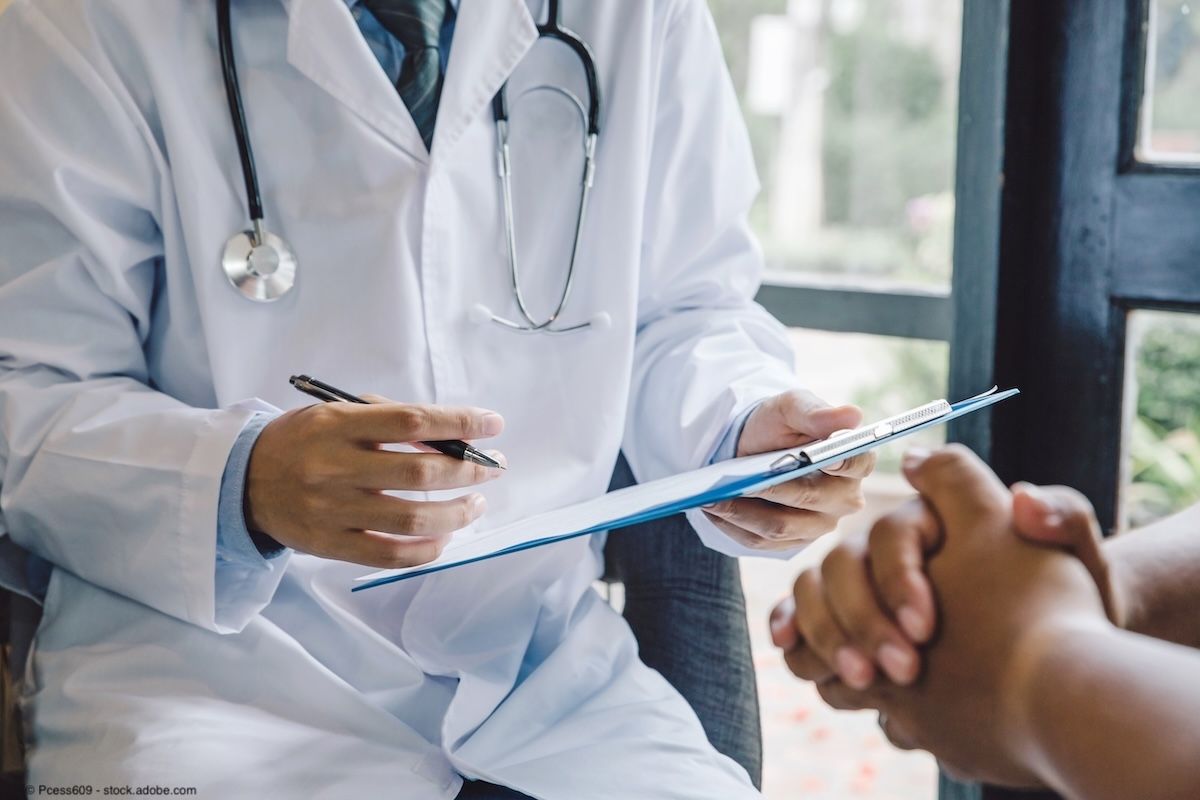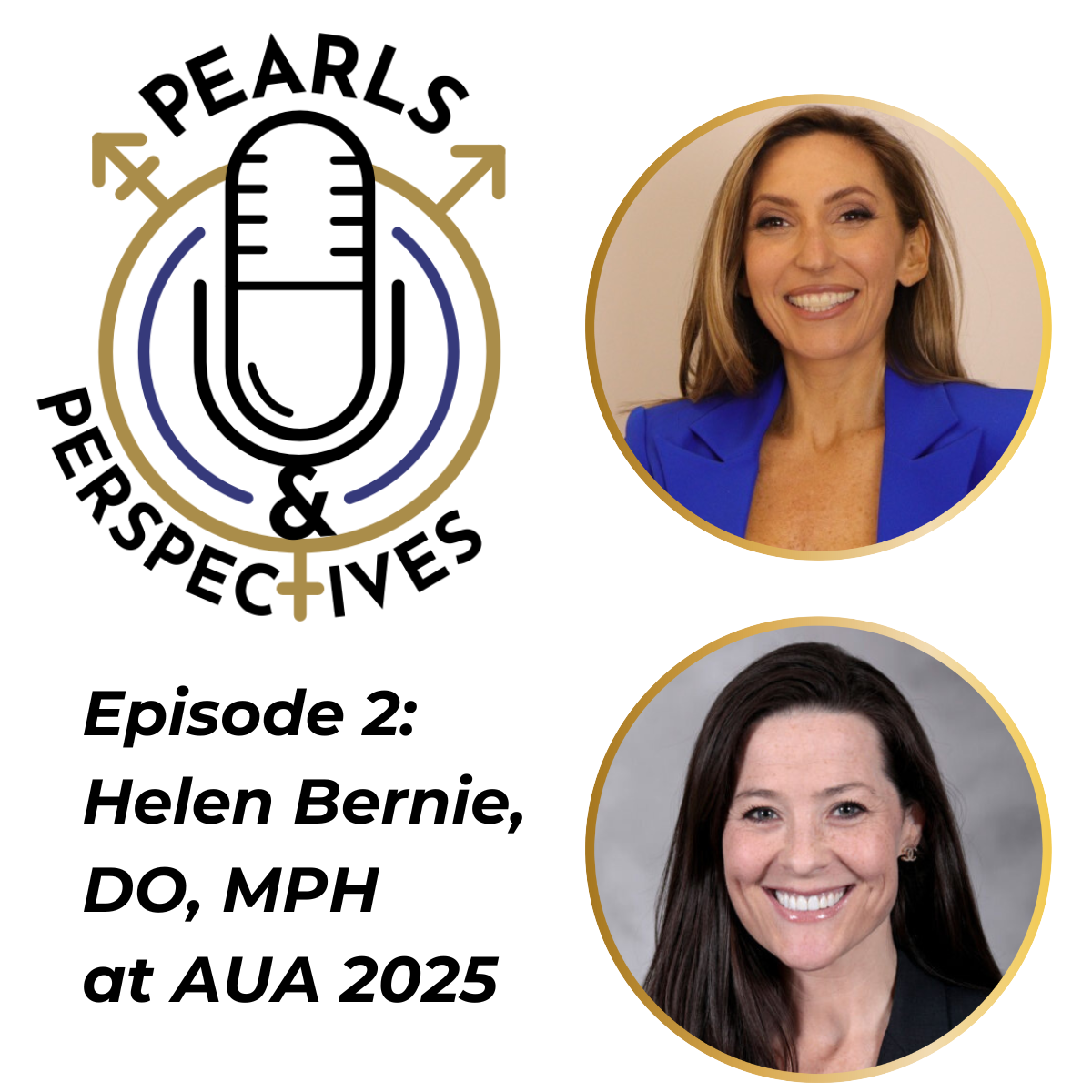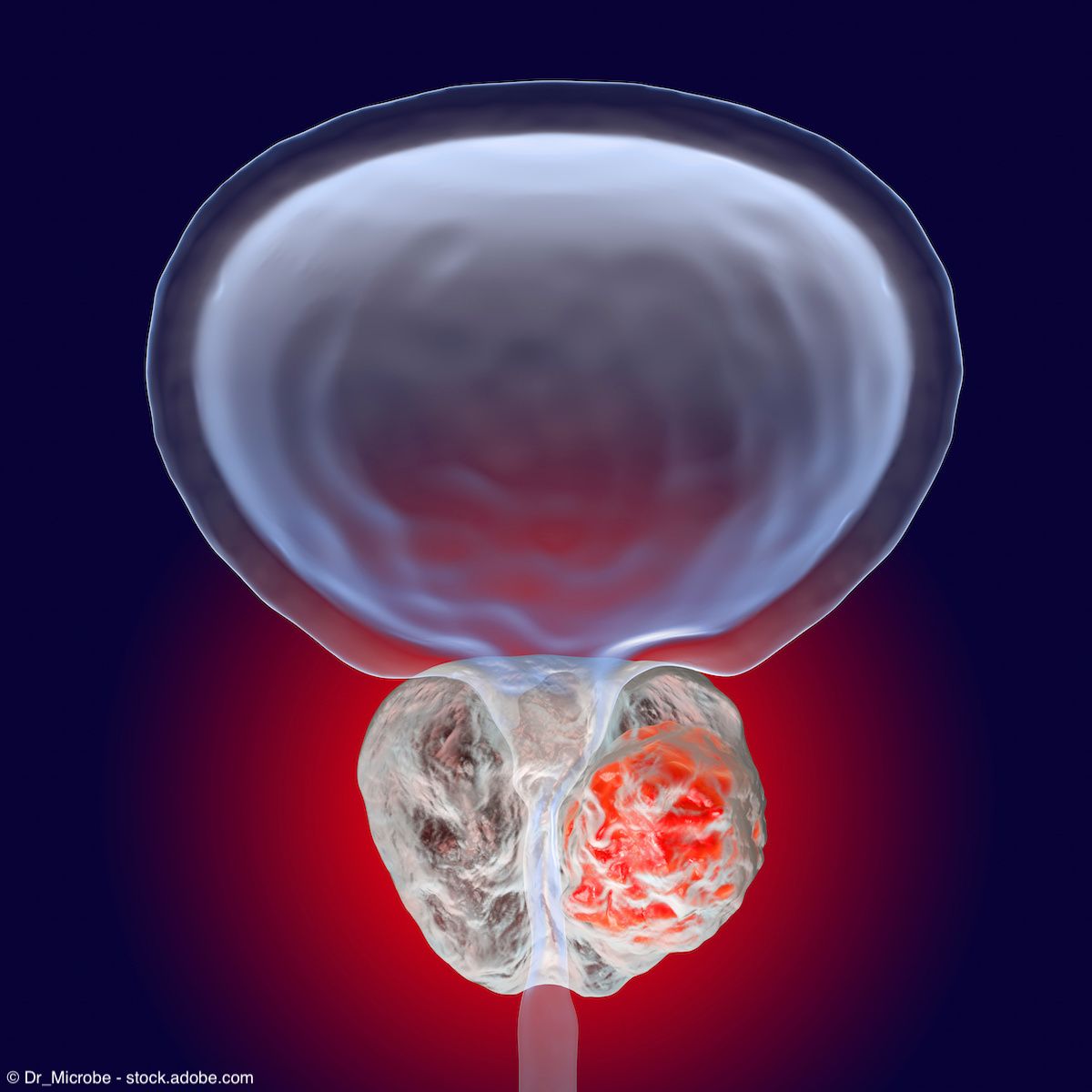Feature
Article
Study evaluates weight management and prostate cancer progression, QOL
Author(s):
"To me, the most compelling outcome is really the quality-of-life outcomes. General quality of life as well as emotional quality of life improved in the intervention group significantly," says Jill M. Hamilton Reeves, PhD, RD, CSO.
Jill M. Hamilton Reeves, PhD, RD, CSO

In this interview, Jill M. Hamilton Reeves, PhD, RD, CSO, discusses the Journal of Urology paper, “Impact of Weight Management on Obesity-Driven Biomarkers of Prostate Cancer Progression.” Hamilton-Reeves is an associate professor of dietetics and nutrition at the University of Kansas Medical Center in Kansas City.
Please describe the background for this research.
We know that obesity and prostate cancer are associated, and there have been quite a few studies looking at the science behind what is it about obesity that might be driving prostate cancer progression? And so we had interest in trying to look at mechanisms and seeing if the obvious question is, well, if obesity is associated with progressing cancer, can we disrupt that link if we help men lose weight in a healthy way? That being said, it's more likely for men with prostate cancer to die of cardiovascular disease, and we know that obesity increases the risk of cardiovascular disease and all-cause mortality as well. So it was one of those things that had a very low risk as far as intervening. I think the other important part is that when I started working with the urology department, I was introduced to a patient who had prostate cancer, and he really gave a lot of input on the feasibility of doing this type of trial and really kind of co-developed the project with me. His name was Jeff Jernigan. Unfortunately, he has passed from prostate cancer, but it was a really neat experience as a researcher. That was the first time that I had co-designed a trial with someone who had already walked in the steps of what this process was like. He was not obese; he wasn't overweight, and he also saw the benefit of lifestyle changes and how that helped him battle cancer, and so that was a narrative that really drove our work and really informed how we went about putting the intervention together.
What were some of the notable findings? Were any of them surprising to you and your coauthors?
There are the basic findings of, well, did you get the guys to lose weight. This is not our first study. We have a feasibility study that was published a few years ago, where, to get that funding, the reviewers were very concerned that men just wouldn't sign up for this; they would not be interested. The study design of that particular trial was really interesting [in] that we actually had guys choose, do they want to do the intervention or not? Which, of course, is not a randomized trial that has the same kind of gold standard as like what we did in this trial. But we found that the guys were willing to do it. And in fact, many of the guys on that trial asked how they could help us design the next step. We called them ambassadors. They came in, and they told us what they liked, they told us what they didn't like. It was a very candid conversation. We asked them about the randomized design. They had concerns about some patients getting the intervention and some patients not. They felt very strongly that everyone in the study really needed to understand the relationship between nutrition and prostate cancer. Whether or not they got the intervention or not didn't seem to bother them as much. That went into how we put this trial together, that there was a control arm, but it was an active control, where they received educational materials about the relationship between nutrition and prostate cancer, and about prostate cancer itself. And then the intervention group received the guidance, the coaching, for weight loss...learning how to put their food together, and exercise. The biggest finding was that the guys lost the weight. They lost 5.5% of their body weight. In fact, they kind of got on a roll with the routine. Many of them, after their surgery, in the 6 months' time where we really were just focused on making sure that the guys didn't gain weight back after surgery, they had incorporated so many of the lifestyle factors that they just kept losing. By the end of the trial, 6 months after their surgery, the average amount of percent body weight loss was 11%. That part was surprising. The 11% was surprising; the 5.5%, I was very confident that our our design would work because it did in the feasibility study, and it's a very standard weight management type of protocol. There were also some other pleasant surprises. They lost a lot of what we call visceral adipose tissue, and that's basically adipose or fat tissue that resides around the abdominal and the visceral organs. Being overweight is actually not all that unhealthy. But there are metabolic factors that people can be overweight, but actually quite fit and quite healthy. But people can be maybe not overweight, but they carry a lot of this kind of central fat that affects their metabolism; it makes them less sensitive to insulin, it leads to this chronic smoldering inflammatory state in the body. That leads to problems with cancer progression and that type of thing. So in this study, these guys lost a significant amount of that visceral adipose tissue. I wouldn't say it's necessarily surprising because they were exercising along with the caloric restriction. I was very pleased; the guys felt great about that outcome. And then some really obvious things changed: glucose-related biomarkers, so how the body handles blood sugar, that all improved significantly, which you would expect with that amount of weight loss and in the method in which we help them lose weight. And then some of the factors that are released from fat, we call them adipokines, they play a role in either helping cancer progress or holding cancer back, and the ratio changed in a way that was very favorable for reducing the likelihood of cancer progressing. One of the things that did not change was we looked at prostate tissue from the biopsy before the intervention began to prostate tissue after the intervention at surgery, so part of the prostatecomy, and of the markers we chose, we did not see any significant differences with the intervention. What's a little bit tricky about that is prostate cancer is multifocal. So there are lots of different places that it shows up in the prostate gland, and so we did not necessarily compare the same spot with the same spot. It's one of those things that I'm hoping that we get to do a larger trial, and there are new methods of collecting prostate tissue from the prostatectomy that can be mapped better to where the biopsy is so at least we're a lot closer. I hope we do get that chance, but that was probably the part that I was kind of like, "Oh man, I really thought we would see something," because in our feasibility study, we did see some favorable changes in the tissue.
Will these findings affect your patient counseling in any way?
I think these findings are a little early to say that weight loss would reduce the risk of prostate cancer progression because we don't have that hard outcome yet. I would say that the biomarkers are going in the right direction, so I think we can feel a little more confident that making these healthy lifestyle changes could point you in a trajectory for a better place. And to me, the most compelling outcome is really the quality-of-life outcomes. General quality of life as well as emotional quality of life improved in the intervention group significantly. That was different from the control group. To me, and being around these guys and hearing their morale and how things changed in that way, to me, that feels like something that's actionable, because there's so much that's out of our control when we put ourselves into the health care system and at the mercy of a wonderful clinical care team, there's so many things out of our control, and feeling some agency and autonomy to really focus on our health when it feels like maybe our body might be betraying us with having cancer. But we know we're actually making choices that are making our heart healthier, making emotional health and mental health more resilient, and doing the small part that we can to help keep cancer from coming back. To me, that's kind of the piece that I'm hoping we can launch forward on for seeing if there's more that we can do to support these patients during this time. And then also, keep learning from the science coming out as far as how making these changes to energy balance affects the cancer itself, or affects the ability of the cancer to spread.
What is the take-home message for the practicing urologist?
I work with a lot of different patient groups and prostate cancer survivors and people that are going through prostate cancer, and there's a lot of conversation about the role of diet and exercise. And sometimes, I think that it's important for clinicians to realize the agents of change that they really can be, that if patients are asking them, "I'm going to do all these things, I'm going to do what you say. We've decided together that this is the best treatment approach. What else can I do for my health?" To have that conversation and [tell them], "There are some early data suggesting that if you really work to make your diet as healthy as you can, and move more, and make those changes and get the support you need to really take care of yourself, you might just overall feel better, like emotionally, and then also, your body might withstand this better." I really think that's probably the key take-home message from that. I feel like that's also what my ambassadors and patients have reported back to us after this trial, because we keep talking to them, we follow up with them. At first, it was every 6 months, and then every year afterwards, because we do want to see if there's differences in rates of recurrence. And at that time, we also asked them what their efficacy is for keeping these kinds of dietary habits. Did they learn what they needed to learn? Are they still able to make those choices? Same thing with exercise. What technology are they still using to assist them? And that's been really interesting to hear how different people have taken what they've learned, and they've made it their own to be a lifestyle change for them.
Is there anything you would like to add?
I didn't mention that a lot of the cardiovascular disease markers did also change. I think I probably said that with the assuming role that if they lost that amount of weight that they would. We did find things like cholesterol and other markers like that to improve with this intervention as well. So I think that's probably an important take-home message. I also think it's important to mention the population data that we looked at to justify this trial. There have been population studies, or when you look at large cohorts of patients at 1 time point or a couple of time points, and there have been some interesting data showing that visceral adipose tissue is related to increasing the risk of fatal prostate cancer. Even though I can't say that if you lose that tissue, that would decrease your risk of dying from fatal prostate cancer, I think that understanding that that was part of the justification for why we wanted to focus on diminishing that visceral adipose tissue or that abdominal tissue. I think another thing that's important is that sometimes people have unhealthy relationships with food and exercise. And so the healthy aspects of coping are what we were trying to promote, and having a coach and someone there to kind of rein people in if they went a little too far was also really helpful. If you're a person that goes to extremes, like all in all not, knowing that, having a coach or a dietitian help you might be a good idea so that you really maximize the goodness out of making these lifestyle changes. The last thing is, one of the reasons our design was different than some of the prior work that looked at weight loss prior to prostatectomy is we really wanted to help the guys keep that weight off after surgery, because there are, again, some population studies that have shown that if you gain weight after prostatectomy, that that increases your risk of prostate cancer recurrence. And so I want to drive home the message that we're not going for like a Hail Mary bootcamp, like how much you can lose, and then you gain it right back, because that's not the point. The point is healthy, adaptive changes that are sustainable, that you can keep off, because we don't want that rebound/regain. That might be as harmful as being obese in the first place, I don't have data to say like apples to oranges or anything like that. But there are data saying obesity is related to progression and there are data saying regain of weight is related to progression as well.
This transcription was edited for clarity.
Newsletter
Stay current with the latest urology news and practice-changing insights — sign up now for the essential updates every urologist needs.

















